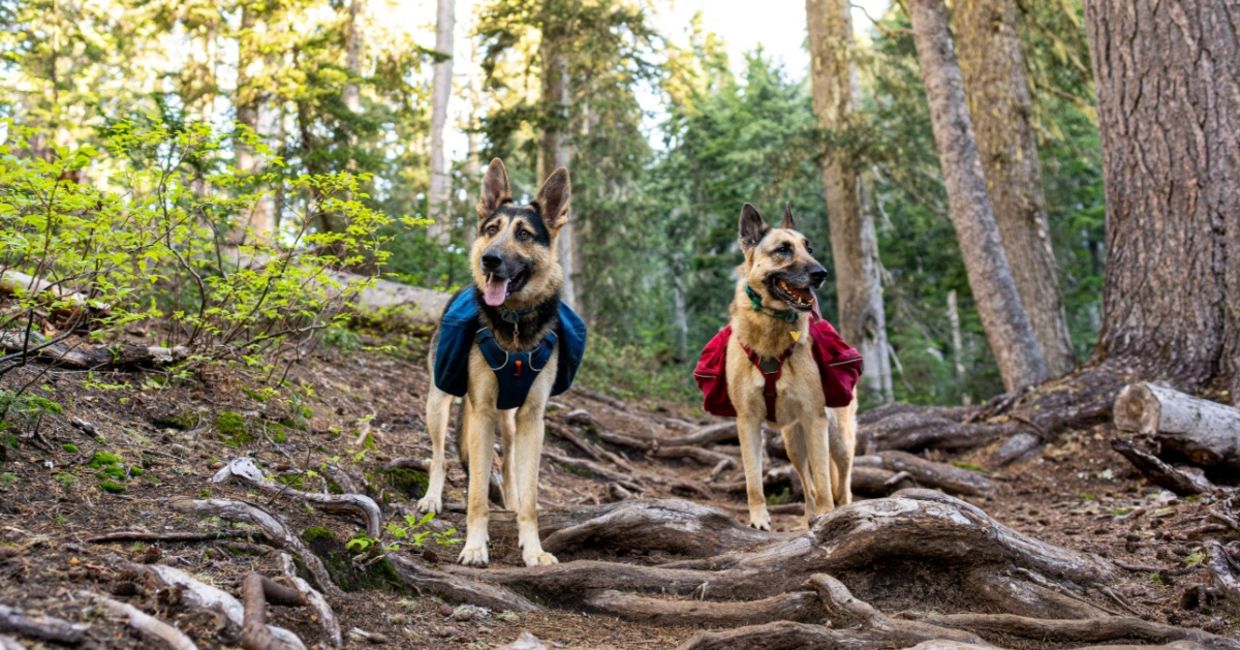
(Suchavadee / Shutterstock.com)
Rewilding or restoring nature to areas that have been degraded is flourishing in the UK. There have been many large-scale success stories where the introduction of wildlife, like bison, has helped turn former agricultural space into thriving areas of biodiversity, according to the organization Rewilding Britian.
This is also being done in urban areas on a smaller scale including the Railroad Land Nature Reserve in the East Sussex town of Lewes; a small 25-acre site that is bordered by the Ouse River and a railway line. The rewilding project by the Railway Land Wildlife Trust is the first in the UK to utilize dogs in the effort of bringing the area back to nature, reported The Guardian.
Rewilding in Lewes
But it’s really not practical to release wild animals to help spread wildflower and grass seeds so the project has enlisted dogs to act like the wolves – that roamed Britain before they became extinct in 1760 – by equipping the canines with specially designed backpacks that release seeds, reported The BBC.
“If we went back 1,000 years we would have seen wolves and possibly bears roaming the landscape, there might have been bison, wild boar, wild horses. They all had a positive impact on the ecosystem, project manager Dylan Walker told BBC. “We’re a small urban nature reserve so we’re very limited in terms of bringing those animals back, but what we do have is a proxy for wolves which are our domesticated dogs.”
Facebook here
The project was inspired by the efforts of two women in Chile who in 2019 planted seeds, with the help of three dogs, in areas that had been devastated by wildfires, according to The Guardian. Walker decided to follow in their footsteps.
How does it work?
Since dogs can cover more ground than people and can reach hard to access areas, it made sense to enlist the help of local dog walkers who were walking their pets in the reserve. The dog walkers pick up backpacks with holes in them that contain seeds from staff members before heading out.
“We mixed the seed with sand not only to help the seed go further, but it also proves to be really helpful in allowing us to track where the dogs are depositing the seeds as well,” Walker told The Guardian.
The dog owners who are participating in the project are very enthusiastic about the role their pets are playing, “I signed up because it sounded like such a good fit. I was asked to place a harness on my chocolate cocker spaniel called Bertie and he ran around spreading seeds like wolves used to do many years ago,” said owner Cressida Murray.
While still in its early days, there is already seed germination in some areas but it could take years for the wildflowers and plants to be established.
“A community-based project like this not only helps engage and teach people about the ecological impacts of wildlife but also allows us to make our wildlife and environments richer in the process,” Walker shared.
YOU MIGHT ALSO LIKE:
Scotland Opens First Ever Rewilding Center
Rewilding Nature, a Unique UK Conservation Project
Camels are Restoring California’s Mojave’s Joshua Trees After Wildfires







